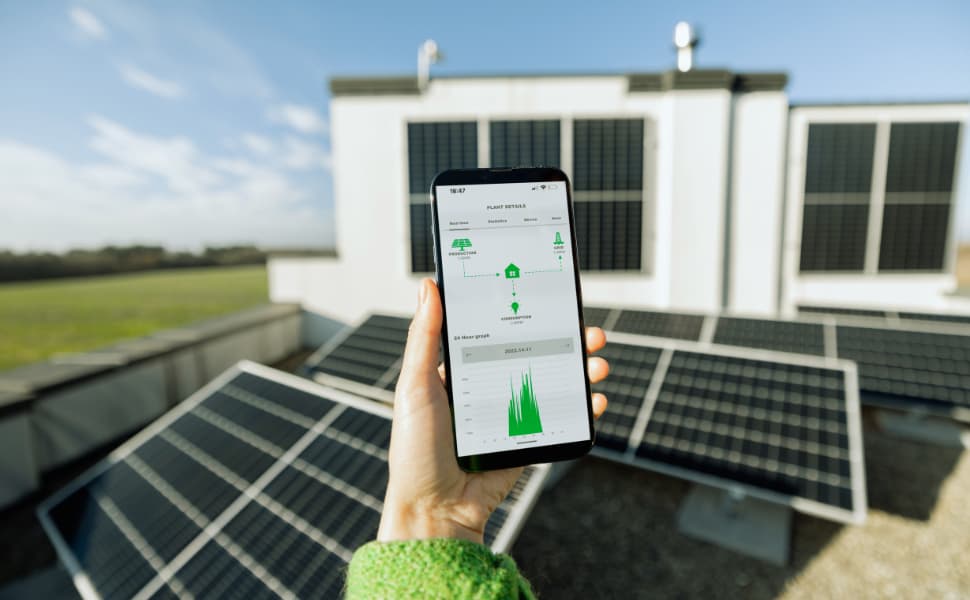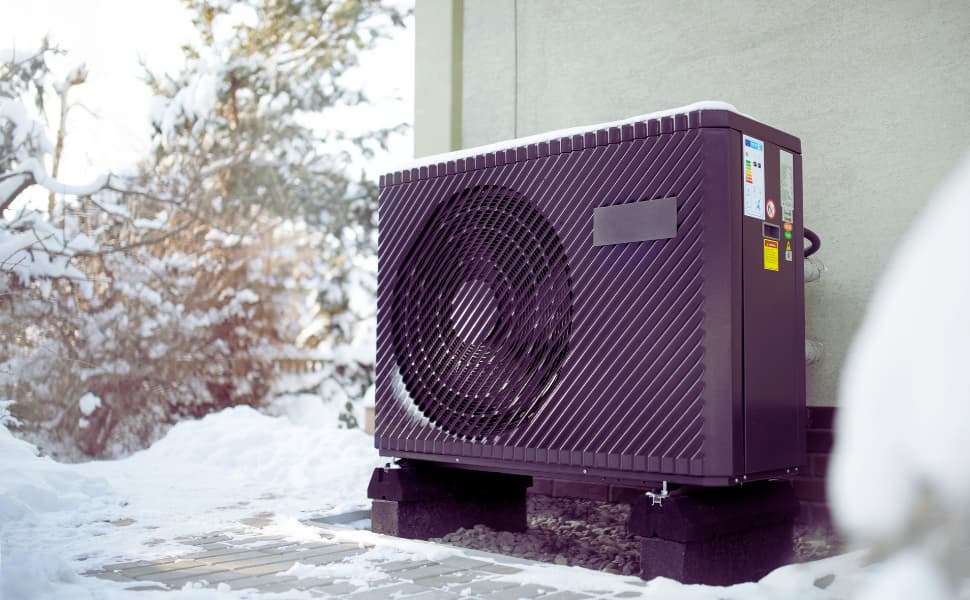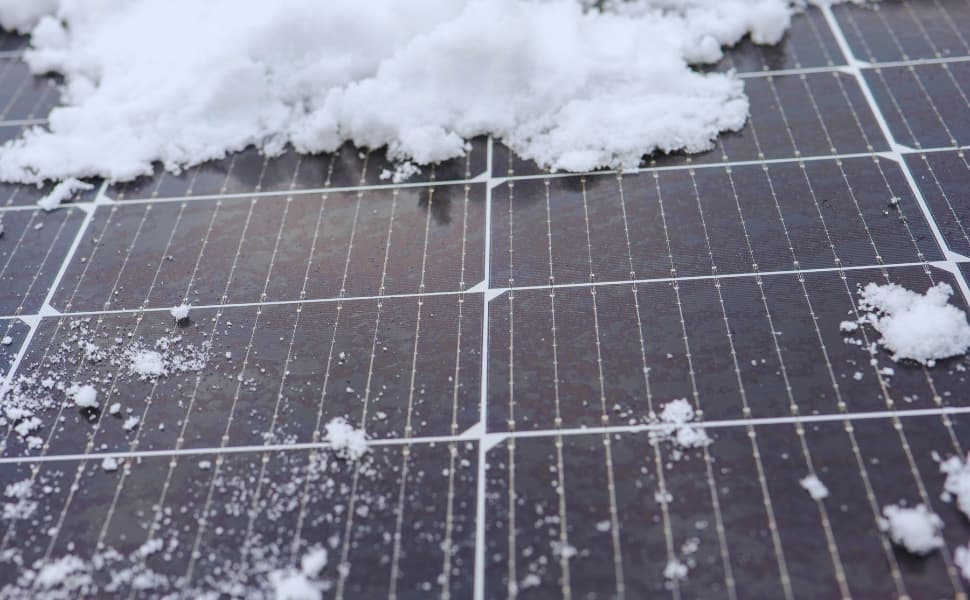Solar energy has become one of the fastest-growing renewable energy sources in the UK, driven by rising energy costs and the growing demand for sustainable living. For homeowners, businesses, and communities alike, solar panels offer an efficient and cost-effective way to generate electricity and reduce reliance on traditional energy sources. This article will introduce you to the key aspects of solar energy, explain how solar panels work, and highlight the benefits of switching to solar power in the UK.
What is Solar Energy?
Solar energy is the process of converting sunlight into electricity using photovoltaic (PV) cells. Solar panels comprise multiple PV cells, usually constructed from silicon, that capture sunlight and generate direct current (DC) electricity. This energy can be converted into alternating current (AC), which is used to power homes, businesses, and the national grid.
Solar energy is effective in the UK, even on cloudy days, because PV cells capture direct and diffuse sunlight. As a result, solar panels can generate a steady flow of electricity throughout the year, making them a reliable option for UK households looking to reduce their energy consumption and lower their carbon footprint.
How Do Solar Panels Work?
Solar panels rely on photovoltaic cells, which contain semiconductors like silicon. When sunlight hits the PV cells, it excites the electrons within the semiconductor material, generating an electrical current. This direct current (DC) flows through an inverter, which converts it into alternating current (AC), the type of electricity used in homes.
The size and efficiency of a solar panel system can vary, but modern solar technology ensures that even a small system can produce a significant amount of electricity. The efficiency of solar panels in the UK is influenced by factors such as roof orientation, shading, and seasonal variations in sunlight.
Components of a Solar Panel System
1. Solar Panels:
These capture sunlight and convert it into electricity.
2. Inverter:
Converts the electricity generated by the solar panels from DC to AC.
3. Solar Battery (Optional):
Stores excess electricity for later use, particularly at night or on cloudy days.
4. Metering Systems:
Track how much electricity is produced and used, allowing homeowners to monitor their system’s performance.
The Growth of Solar Energy in the UK
Solar energy has grown rapidly in the UK since the government began incentivising renewable energy adoption. By 2023, solar power accounted for over 13.5 GW of installed capacity, a figure that continues to rise as more homeowners, businesses, and communities invest in the technology. With the UK government committed to achieving net-zero carbon emissions by 2050, solar power is critical in the country’s renewable energy strategy.
Although the UK’s climate is often perceived as too cloudy for solar power, advances in solar panel technology mean that solar panels can generate electricity even in less-than-ideal weather conditions. Solar panels are most efficient in cooler climates because excessive heat can reduce the efficiency of PV cells.
Solar Panel Costs and Incentives
The cost of solar panel installations in the UK has dropped significantly over the past decade, making it more affordable for households to switch to renewable energy. The average solar panel system cost for a typical UK home ranges from £4,000 to £8,000, depending on the size and specifications of the system.
The UK government offers several incentives to encourage solar energy adoption. One of the most significant is the Smart Export Guarantee (SEG), which allows homeowners to sell excess electricity generated by their solar panels back to the grid. The zero-rated VAT on solar panel installations, introduced in 2022, also helps reduce the overall installation cost.
While the initial investment in solar panels may seem significant, the long-term savings on energy bills can be substantial. Many UK homeowners report up to 70% savings on their electricity bills, particularly during the summer months when daylight hours are longer and solar panels are most efficient.
Environmental Benefits of Solar Energy
One primary reason homeowners and businesses choose solar energy is its environmental benefits. Solar power is a clean, renewable energy source, significantly reducing carbon emissions. Solar panels help reduce the UK’s reliance on non-renewable energy sources like coal and gas by generating electricity from sunlight rather than fossil fuels.
A typical solar panel system installed on a UK home can reduce carbon dioxide emissions by up to 1.5 tonnes per year. Over the system’s lifespan, this can result in a significant reduction in greenhouse gases, contributing to the UK’s broader environmental goals.
Integrating Solar Panels with Your Home
For homeowners considering solar panel installation, it’s essential to understand how solar panels can integrate with your existing energy systems. Solar panels can be combined with traditional electricity supplies, so the home can still draw power from the grid even on days when the panels aren’t generating enough electricity.
Additionally, many UK homeowners install solar batteries, which store the surplus electricity generated during the day for use at night. This can further reduce your reliance on the grid and increase your solar panel system’s financial and environmental benefits.
To Consider Before Installing Solar Panels
When deciding whether to invest in solar panels, there are several factors to consider:
Roof orientation:
South-facing roofs capture the most sunlight, though east- and west-facing roofs can also be effective.
Shading:
Trees, chimneys, or other structures that create shade can reduce the efficiency of your solar panels.
Size of the system:
The size of the solar panel system will depend on your household’s energy needs and the available roof space.
Maintenance:
Solar panels require minimal maintenance but should be cleaned occasionally to ensure maximum efficiency.
The Future of Solar Energy in the UK
Solar energy is increasingly important in the UK’s transition to renewable energy. For homeowners, investing in solar panels reduces electricity bills and contributes to a greener, more sustainable future. With government incentives like the Smart Export Guarantee and reduced VAT rates, there’s never been a better time to explore the benefits of solar energy.
At Heat IQ, we are committed to helping Yorkshire homeowners make the most of solar technology. Whether you’re just starting to explore your options or ready to install a solar panel system, our team guides you every step of the way. Contact us today to learn more about how solar panels can work for your home.
Related Articles
- Government Incentives for Solar Installations in Yorkshire
- Tips to Help Make Your Home Feel Warmer This Winter
- Maximise Solar Energy for Homes in Yorkshire
- Integrating Solar Panels with Existing Energy Systems
- Air Source Heat Pumps (ASHP) Introduction & Overview




